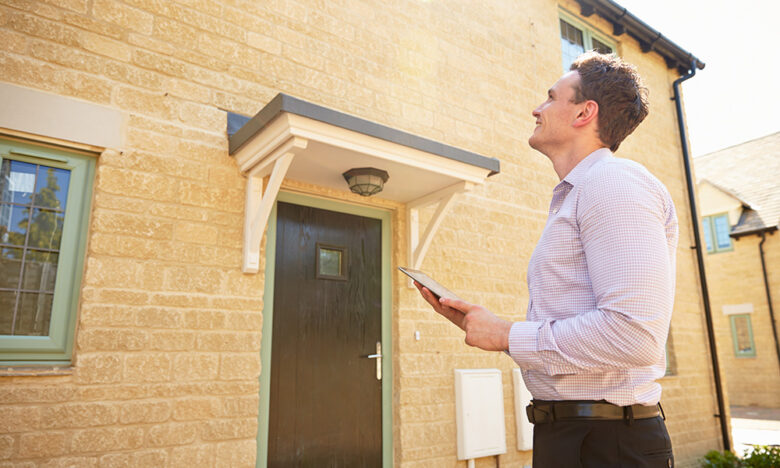
What Does a Building Surveyor Actually Do?
When buying a house, you probably know that you’ll need to get a building survey done before matters can proceed, but have you ever wondered what happens during a survey and what the surveyor will do before, during and after their inspection? If so, read on.
What does a surveyor do?
Put simply; a building surveyor will examine the property you’re buying to check and advise on its condition. They’ll highlight potential issues or possible future concerns with a focus on build quality, damage, defects and other material issues.
What they do will depend on what they’ve been instructed to do. This could be anything from a full building survey to a valuation or investigation of a specific issue.
What services does a surveyor offer?
Surveyors offer a number of services. Top of the list will be a property survey. This could be a more basic HomeBuyer Report or a comprehensive building survey. At Novello, we also offer a complete Private Client Surveying service, a unique, bespoke offering that delivers much more than just a building survey. With pre-inspection research, drone or telescopic pole camera survey of the roofs, major defect costings estimates, a reflective market valuation and insurance reinstatement figure, this is the gold standard of building surveying services.
Valuation is also a discipline of surveying. You may need the services of a valuation surveyor who can assess a property’s market value. This may be to confirm that the amount you’ve offered when buying a home is fair or to verify values when going through probate, divorce or remortgaging, for example.
Surveyors may also be specialists in particular areas such as roofs. With areas of a property that are integral but hard to assess, such as roofs, it can be helpful to have a more thorough investigation than is offered with most building surveys.
Surveyors can also carry out many other services, including structural inspections, asbestos reports, commercial surveys, schedule of condition, boundary disputes and party wall surveys.
Remember, surveyors are skilled professionals who understand property construction, building regulations, structural issues and more, so you’ll benefit from this insight and expertise whenever you instruct a surveyor.
Ten things a building surveyor will do
- Inspect internal features of the property
When carrying out a survey, much of the surveyor’s time will be spent inside the property, looking at the condition of as much of it as is physically accessible. This will include cellars, lofts, underfloor coverings, behind furniture, windows, doors, internal walls and partitions, internal joinery and more. Here they’ll be looking for anything that could cause concern, such as more serious issues like signs of damp, subsidence, or timber decay or infestation, as well as more cosmetic issues, such as minor cracks in walls and ceilings or damage to floors and fixtures and fittings.
- Examine external areas and outbuildings
The external condition of the property will also be thoroughly investigated during a building survey, along with any gardens and outbuildings. Areas of focus here will include the roof, including any flat roof area, chimney stacks, windows and doors, parapet walls, gutters and downpipes, and external walls. Again, the condition of all of these elements will be assessed, and any issues noted. Fences and other garden boundaries, the state of any paving or tiling and the presence of any large trees near the property whose roots could be an issue will also be considered.
- Report dangerous materials
If you’re buying a period property, your surveyor will also be on the lookout for any dangerous materials that could have been used in its construction. While materials such as asbestos, lead and fibreglass insulation are no longer used in construction, they may still be found in older homes. Sometimes these dangers are not visible, so if, for example, there are signs of previous lead pipework, your surveyor will highlight that there could be lead pipes hidden behind fixtures and fittings and advise on the next steps to take.
- Check services
Your surveyor will also check the main services within the property, although they will only inspect services that are visible to them. This will likely include a visual inspection of the electricity meter and fuse boxes, smoke alarms, gas system, boiler and above-ground drainage pipes. It should be noted, however, that surveyors are not qualified to test the gas or electrics themselves.
- Highlight any legal issues
In addition to assessing the physical state of the property, a building surveyor will also highlight any potential legal issues that should be raised with your solicitor before completion. This will include checking that the property meets building regulations and has planning permission for any works carried out, ensuring windows and doors have the proper certificates and that the electrical system, the gas installation and the white goods and appliances have any guarantees or certificates and if these can be transferred to you.
- Respond to any specific concerns
While a building survey is a comprehensive assessment of a property, if you have any particular areas of concern or questions, your surveyor should be on hand to discuss these with you ahead of the inspection and run through their findings afterwards.
- Provide important information about the property
Your surveyor will also ensure you have all the essential details regarding the property’s age, type and construction. This will include the year it was built, when any significant works such as extensions and conversions occurred, its energy efficiency and environmental rating, a breakdown of the layout, local amenities, and whether the property is leasehold or freehold.
- Produce a report explaining the overall condition of the property
This information will then be delivered to you in a report compiled by your surveyor, including photos and a written account of their findings. This should be set out in a clear format so all issues can be clearly understood and delivered to you within a few days of the inspection.
- Highlight any risks or major concerns
The report will highlight any major issues you should know before proceeding with the sale. This information will help ensure you go into a purchase fully informed and you’re not hit by unexpected costs for repairs further down the line.
- Provide an impartial valuation
One thing not to be overlooked is that the surveyor is an impartial figure in the house-buying process. Rather than being concerned with making a sale, your surveyor is there to ensure you are informed and comfortable to proceed.
What to consider when choosing a surveyor
When choosing a surveyor, there are several factors to consider. Firstly, be sure to check they’re qualified and a member of The Royal Institution of Chartered Surveyors (RICS), that way, you can be sure you’re getting an impartial surveyor who works to an agreed set of standards.
A local surveyor is likely to have better knowledge of market values in the area and will understand any quirks or features of properties that may need to be investigated more thoroughly. Be sure to check the service they offer is what you need, though – having a thorough survey delivered quickly by a responsive team that listens to your concerns and spends time explaining things to you can be invaluable when trying to secure your next home.
For more tips on how to find the best surveyor for your needs, read our blog How to Choose a Surveyor.
Private Client Surveying from Novello
A detailed, clear, accurate and informative building survey is at the heart of Novello’s Private Client Surveying service. More than that, Novello offers a partnership approach that will ensure you navigate the house-buying process with the minimum amount of stress. Additional features include major defect costings estimates, help with any further investigations that may be needed, renegotiation advice, and more. It’s all part of our bespoke service that’s tailored to your needs and responds to your concerns so that you can proceed with confidence and avoid costly mistakes.
To find out more, contact us today or arrange a free consultation.

